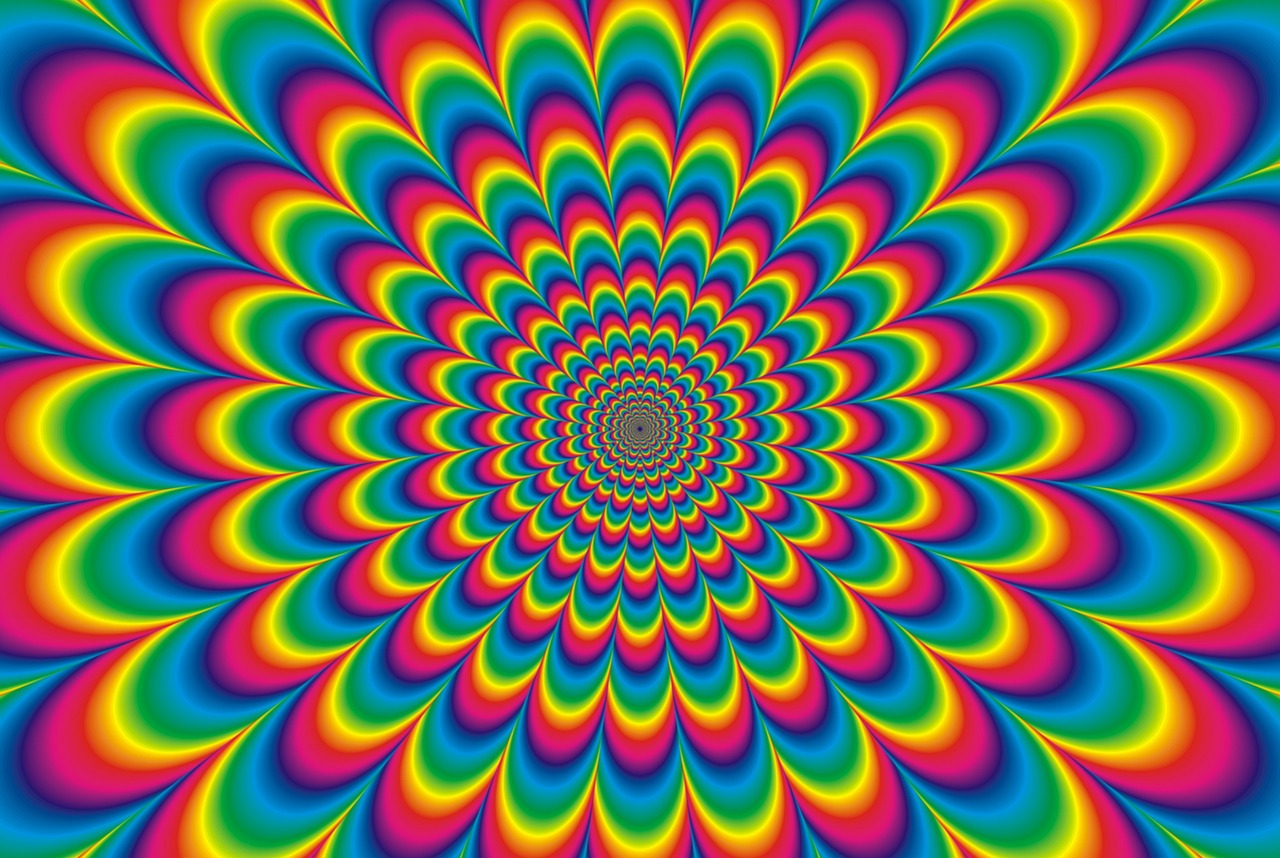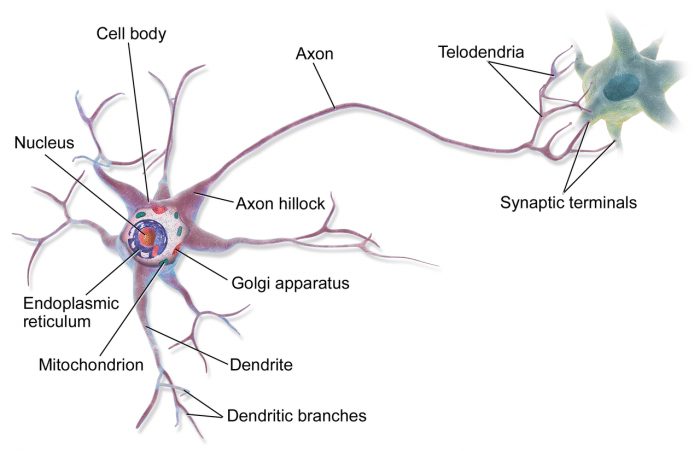
In recent findings, researchers believe that psychedelics could be used to treat depression by restructuring the brain of individuals. The mind-altering capabilities of psychedelics are commonly known and can potentially be used towards something good, like treating depression or similar conditions.
New information on depression appears to show that the disease behaves like a neural circuit disorder because the symptoms of depression are the result of neurites, parts of neurons responsible for communication, are altered. The alteration of the neurites results in a loss of communication between our brain cells.

A multipolar neuron. It is capable of connecting and communicating with different parts of the brain and other neurons. These connections are degraded in depression. Credit: “Blausen 0657 MultipolarNeuron” via Wikipedia/Bruce Blaus, licensed under CC-BY 3.0 https://creativecommons.org/licenses/by/3.0/deed.en
In terms of depression, neurites in the prefrontal cortex are the ones that are altered. This area is responsible for reward regulation and fear responses, so their disruption leads to common depression symptoms.
Reported in Cell reports, researchers at the University of California – Davis wanted to explore the relationship between different psychedelics and neurons as it relates to depression. To do this, they tested a variety of compounds, like DOI, DMT, and LSD, on neurons grown in a lab as well as the brains of flies and rats.
The researchers found that the drugs were able to alter the neurons in both the brains of flies and rats as well as the test tube of neurons. This alteration was followed by an increase in connections between the neurons as well as restoring previous connections. This result is also seen in ketamine usage, though it is much more effective in LSD usage.
Since the psychedelics can restore the connection between neurons, researchers believe that it would be an effective option against depression, PTSD, anxiety, and addiction because they are all implicated in loss of neuron connections.
While these tests were not done on humans, the researchers believe that human testing should be the next step. Having looked at the brains of invertebrates as well as vertebrates, the researchers found that they all responded to psychedelics in a similar fashion. This means that psychedelic response should be similar across most species because that response system has not changed throughout time.
This those not mean that you should go out and start trying some psychedelic drugs to get relief from depression. These drugs are still dangerous and their illegal nature makes getting them dangerous as well.
As researchers continue to test psychedelics as a treatment option, future drugs would only contain certain aspects of the psychedelics that promote neuron restoration instead of the hallucination parts. Eventually, drug companies would be able to produce something that is much more specific and safer than psychedelics or ketamine.
Understanding Depression
Depression (major depressive disorder or clinical depression) affects over 100 million worldwide according to the World Health Organization and it is quickly becoming the leading contributor to the global burden of disease as it affects all facets of society.
It is a common mood disorder that alters all aspects of an individual’s life including how they think, feel, sleep, eat, and handle daily activities. Depression comes in a variety of forms and appears under different circumstances.
Persistent depressive disorder (dysthymia) is a form of depression that lasts for at least two years. For those many years, an individual with dysthymia experiences major depression along with less severe symptoms throughout the duration.
Seasonal affective disorder is seen during the winter months, which has less sunlight. This form of depression generally wears off by the onset of spring or summer.
Psychotic depression is a form of depression that occurs within an individual has both severe depression and a form of psychosis. These psychoses can include delusions or hallucinations that take the form of depressive themes.
Postpartum depression is a very serious form of depression that many women experience after giving birth. It is much more severe than the “baby blues”, which is characterized as mild anxiety and depressive symptoms that resolve themselves quickly after childbirth. Postpartum depression experiences include major depression during and after pregnancy that significantly affects the parent’s ability to take care of the newborn.
Another condition that shares a relationship with depression is bipolar disorder. Bipolar disorder is characterized by extremely low moods and extremely high moods (mania). While bipolar disorder is not a form of depression, the extremely low moods meet the criteria for major depression.
There are many symptoms of depression and not everyone experiences the same symptoms as it does vary from individual to individual. Some of these symptoms include persistent sadness, feelings of guilt, anxiety, loss of interest in things, fatigue, loss of appetite, a gain of appetite, difficulty concentrating, and thoughts of suicide. These symptoms vary in their appearance and severity.
If you believe that you may be depressed, it is important to seek help and talk to a medical professional about your concerns to begin healing yourself.
Psychedelics And The Future
Despite their illegal nature and misuse, psychedelics are looking to become part of the treatment option for a variety of conditions in the future. Continued research into the use of psychedelics will build a stronger case highlighting the effectiveness of these compounds, especially after they have been altered to remove their hallucination side effects.
Besides depression, the researchers here believe that psychedelics can also treat PTSD, anxiety, and addiction. Other studies have shown that LSD could effectively treat anxiety by reducing its effects permanently. Similarly, studies are showing that using MDMA to treat PTSD is an effective option alongside many other treatment options.
This continued support for psychedelics will force society to reckon between the dangerous results of psychedelic misuse and its apparent benefits to society. Already, we are seeing numerous research into marijuana usage, another illegal compound, as an effective treatment option for a wide array of conditions.
As long as we can make these compounds into safe and effective treatment options, then there should not be much to stop them from becoming mainstream.









